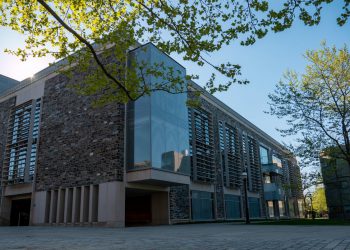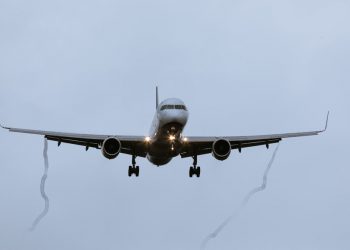[elementor-template id=”3753″]
This is dummy title and will be replaced with real title of your post
Image with size : 1140×570
Image: Davis International Center
Candace Do / The Daily Princetonian
On January 21, President Biden’s administration proposed adjustments to immigration policy and visa requirements aimed at attracting and retaining international students in STEM disciplines.
The Department of Homeland Security (DHS) has added 22 new disciplines to the Optional Practical Training (OPT) program, which allows students with F-1 visas who earn bachelor’s, master’s, or doctorate degrees in specific disciplines to stay in the United States for up to three years after graduation.
The White House claimed that “the expanded fields of study are mostly new multidisciplinary or emerging sectors, and are vital in drawing talent to assist U.S. economic growth and technological competitiveness.”
F-1 visas are the most prevalent for overseas students, according to the Davis International Center, because “most students are qualified for an F-1 visa as long as they have been admitted to Princeton.”
President Christopher Eisgruber ’83, along with several other New Jersey college presidents, addressed these concerns in a letter to the state’s congressional delegation in 2019.
“Over the past several years, we have observed a disturbing increase in the number — and length — of impediments put in the path of our international students, faculty, and staff,” the letter read.
The revision of visa policies is expected to address some of these concerns.
“These actions will allow international STEM talent to continue to make meaningful contributions to America’s scholarly, research and development, and innovation communities,” according to the White House statement.
In an interview with The Daily Princetonian, international students across campus expressed their hope that this announcement will have a beneficial impact on the international student community.
Ronit Singhi ’25, who is studying at Princeton under an F-1 visa, said in an interview with the ‘Prince’ that he believes many international STEM students will welcome this change, “especially considering the particularly turbulent situation international students have had to navigate to continue studying abroad during the pandemic.” Singhi is a prospective physics concentrator from Jaipur, India.
Jenny Jiang ’25, a prospective economics student from Vancouver, Canada, said she thinks this change will attract more students to study in the United States.
“Canada has been attracting more international students in their higher education institutions through favorable policy changes lately and I’m glad to see the U.S. taking steps in this direction,” she wrote in a message to the ‘Prince.’
Source: dailyprincetonian.com
Related Posts
edit post

Immigration
International Princeton students respond to Biden’s announcement on STEM visa increases
edit post

Taxation
Budget 2022 must harmonize the taxes of NBFC with that of banks
edit post

Updates
US Embassy in China has requested that the State Department allow diplomats to leave over Covid restrictions
edit post

Immigration
Belgium: Current Operational Status of Government and Immigration Authorities
edit post

Updates
As omicron infections rise in Germany, COVID restrictions remain in place
edit post

Immigration
